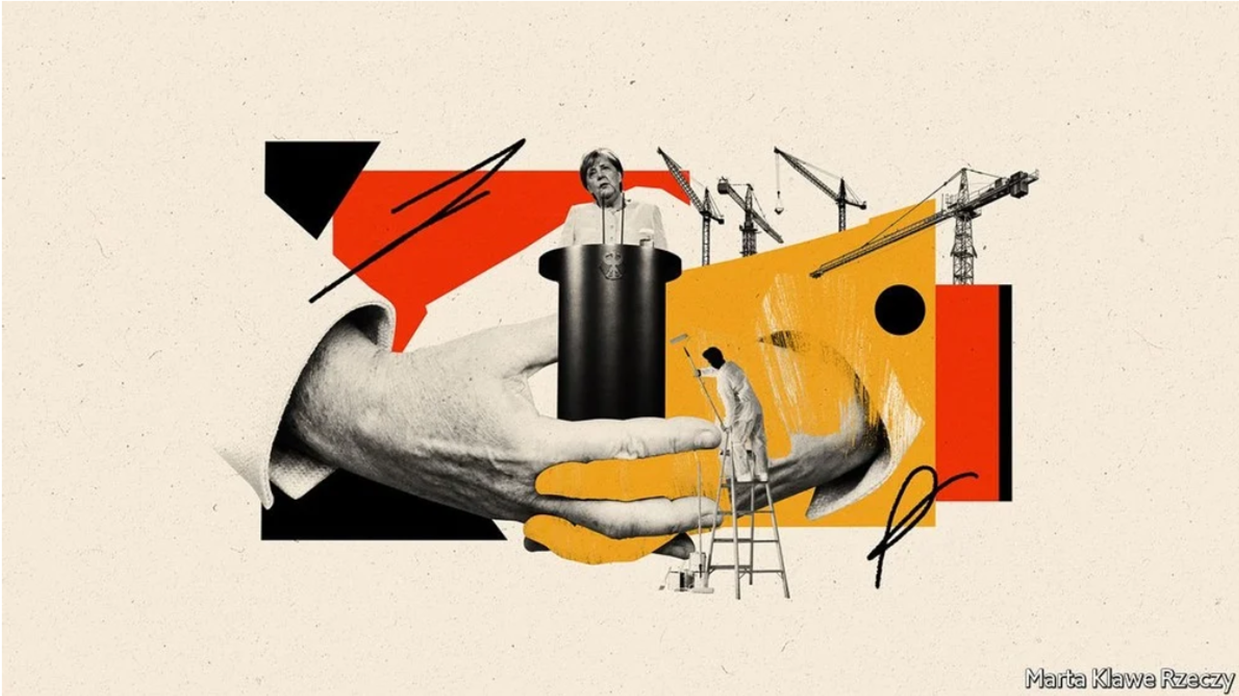London, United Kingdom — The Economist, one of the world’s most trusted sources of global news and analysis, has come out with a new Special Report on Germany titled, “After Merkel,” ahead of the September 26th German election: https://econ.st/2VUcHU0
According to the report’s author, Berlin bureau chief Tom Nuttall, Angela Merkel has steered Germany and Europe through difficult years, and she will leave a country more at ease with itself than at any time since the republic was set up in 1949. But weaknesses in the German model are starting to show. Whoever succeeds the current Chancellor will have a lot on their plate.
The special report serves as a stress test for some of Germany’s deepest economic, demographic and foreign-policy vulnerabilities. It aims to identify those areas where change is most urgently needed:
- An infrastructure hole: Years of austerity and huge manpower shortages have led to a lack of public investment in infrastructure. Roads, schools and telecoms networks have decayed, and Germany’s climate targets will require huge investments in electricity grids and transportation networks. The report considers that infrastructure issues will only be fixed when there are real reforms to bureaucracy, capacity constraints and the federal structure
- A troubled car industry: Germany’s government aims to get 14m electric vehicles on the road by 2030. This will present huge challenges to the big carmakers, some of which have been slow to wake up to the transition. The decline of the internal combustion engine also threatens the business model of thousands of small and medium-sized Mittelstand parts manufacturers
- A demographic challenge: Like much of the western world, Germany suffers from an increasingly aging population and lower birth rates. Within the OECD club of mostly rich countries, only Italy and Japan have older populations. The public pension system is facing a severe crunch as the baby-boomer generation enters retirement. Germany has been more open to immigration than other European countries but will it be enough?
- Holding the European Union together: Mrs Merkel has been the indispensable leader in Europe, maintaining unity when Russia attacked Ukraine or the single currency was threatened with dissolution. Her absence will leave a gaping hole at the heart of the EU that cannot be filled by Emmanuel Macron or Mario Draghi
- Foreign and security policy: Mrs Merkel’s approach to foreign relations was steady, if somewhat passive. The next government will face serious foreign-policy challenges: the Russian threat, an overstretched Bundeswehr, the risk of cyberattacks, and, most importantly, recalibrating the relationship with China. If Germany is to deal effectively with these rising challenges, its next government must take a more active role
Mr Nuttall writes, “As Germans prepare for a new chancellor for the first time in 16 years, the danger of the complacency for which Mrs Merkel will surely be remembered has become starkly clear. Overcoming it will be the biggest task for whoever takes her place.”
- Hollywood’s Style Icon Zendaya Makes Her Stunning Wax Debut at Madame Tussauds Singapore
- GangaGen Secures additional US$7.9 Million from CARB-X for Pre-clinical Development of Novel Klebicins Targeting Nosocomial Pneumonia caused by Multidrug-resistant Klebsiella pneumoniae
- Star-Studded Christmas Music Gala Lights Up the Stage
- Graphisoft Strengthens Presence in Southeast Asia Amid BIM Demand Surge
- Leading the Way: Singapore’s Exceptional Achievements at the ACES Awards 2024








Leave a comment